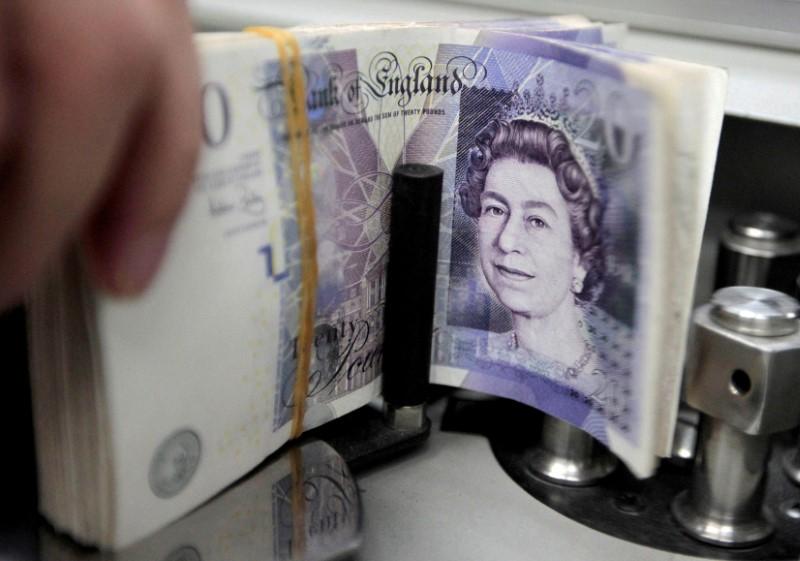Sterling posts strong weekly gains as focus turns to British growth
LONDON (Reuters) – Sterling slipped using a five-week high on Friday but remained motivated for its strongest week since mid-November, with investors putting away their Brexit concerns to target instead on signs the British economy keeps growing robustly.

Consumer confidence showed its biggest monthly improvement since last summer in January, data showed, contributing to a stream of indicators suggesting the Brexit vote has yet to unsettle the households driving Britain’s economy.
Figures on Thursday showed the economy kept up its strong pace of increase the last quarter of 2019, indicating no slowdown in any way since the June 23 vote to depart the European Union, with the economy actually collecting pace while in the second half of year.
That data helped sterling hit a five-week high with Bank of England’s trade-weighted index, and although it inched down 0.1 percent on Friday, it had become still on track for a 2 percent weekly climb.
Against the dollar, it slipped 0.2 percent to $1.2565 on Friday but continued to be up greater than 2 percent in the week. Contrary to the euro, the pound fell 0.Four percent but had also been up almost 2 percent since Monday.
“In the UK economy, it has clearly been a case of business as always so far, in which into wonder if the emergency easing that BoE delivered following your initial false signal sent through the collapse running a business confidence was necessary,” MUFG analyst Lee Hardman wrote within a research note.
“We remain optimistic which the UK economy will slow only modestly that year ahead and attempt to defy fears over a sharper slowdown. It supports our outlook for your pound to outperform more downbeat consensus expectations.”
The key focus for currency traders since Britain dicated to leave the EU is how that departure plays out and in the event it will be a “hard” exit wherein Britain leaves the eu single market as well as a “softer” one retaining greater accessibility to the trading bloc.
After Prime Minister Theresa May said last month Britain would indeed be departing top market additionally, the Supreme Court ruled recently that parliament must approve the triggering of Article 50, seems some questions have been answered and investors are turning over again to fundamentals.
They want ahead into the first BoE “Super Thursday” of the year next week, in the event the central bank, which cut rates to some record low of 0.25 percent in the aftermath of your EU referendum, presents its quarterly inflation report and its decision on monetary policy.
Inflation has accelerated as sterling has shed 12 percent since the Brexit vote on the trade-weighted basis. It truly is led to market talk which the BoE will take a much more hawkish tilt and perhaps signal that must be moving far better raising rates from other current record low of 0.Twenty-five percent.
But a Reuters poll on Monday found most economists expect the BoE to have its rates together with other stimulus measures unchanged at the least until 2019, this excellent traditional model likely to raise its 2019 growth forecast again a few weeks.
Focus was also on Prime Minister’s escape to the United States to satisfy U.S. President Donald Trump.
“We think that market focus could be on any signals regarding the possibility of a U.S.-UK trade deal,” said IronFX currency analyst Charalambos?Pissouros. “If the two parties send optimistic messages in terms of this prospect, sterling could extend its recent gains.”

